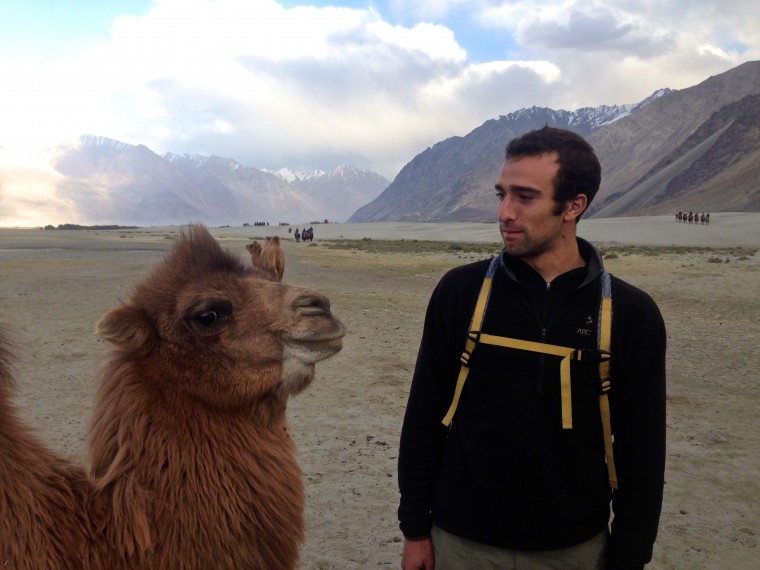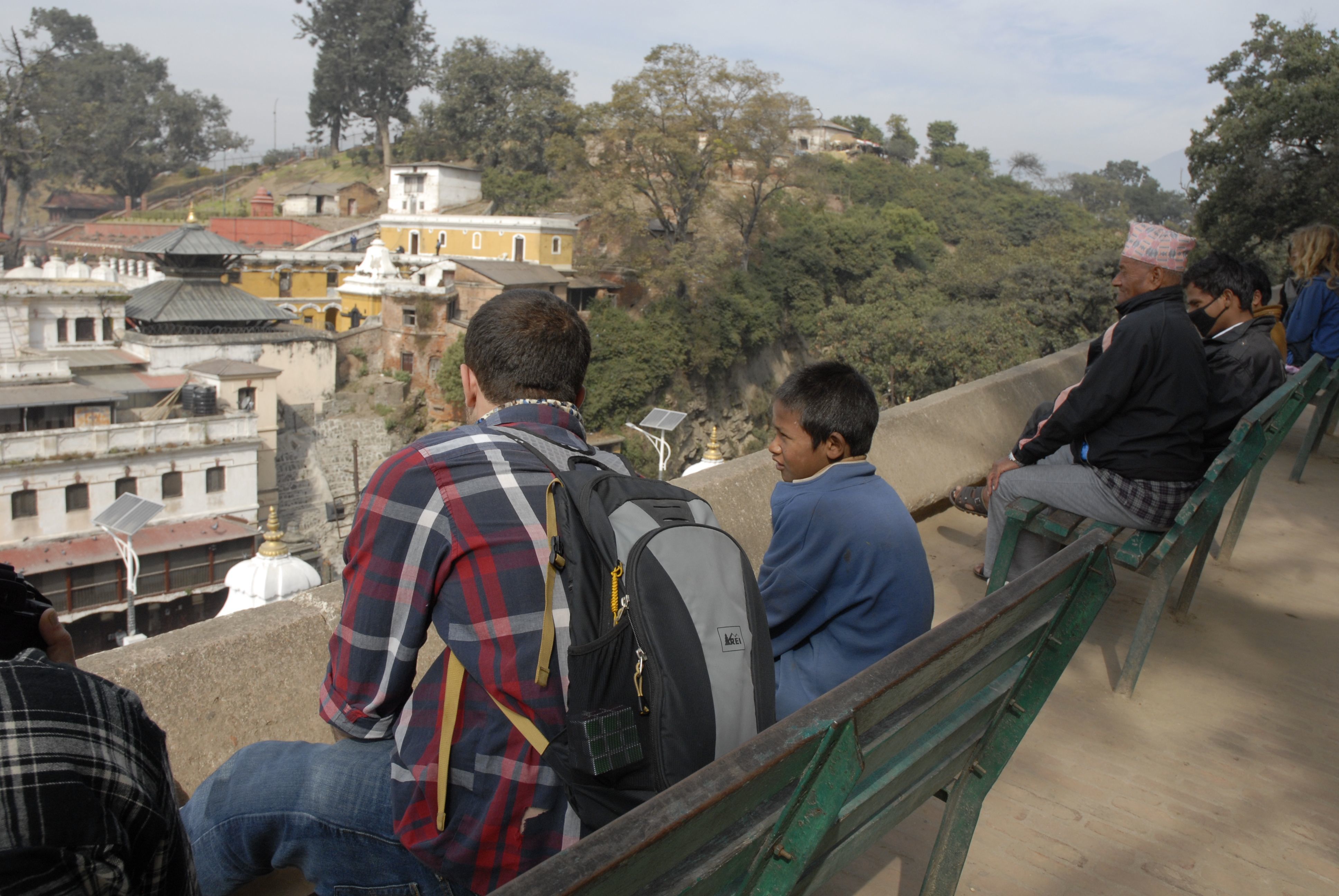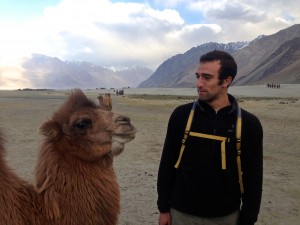Greenwald ’16 Honored for Study of ‘Street Boys’ in Nepal


An independent study project by Michael Greenwald ’16 was chosen as one of two winners of the 2015 SIT Study Abroad Undergraduate Research Award.
The project, titled, “Cracks in the Pavement: The Street Boys of Kathmandu,” was one of more than 2,000 independent study projects (ISPs) completed over the past three semesters, and among 20 nominated for the award. SIT has additionally nominated Greenwald’s project for the prestigious Forum on Education Abroad’s 2015 Undergraduate Research Award. The winners, who will be announced in December, will be invited to present their research at the Forum’s annual conference in Atlanta in April 2016.
The Vermont-based SIT Study Abroad offers semester and summer programs for undergraduate students around the world. In a letter congratulating Greenwald on his award, Vice Provost M. Priscilla Stone wrote, “…your ISP stood out for its deep engagement with individuals and a subculture—the street boys of Kathmandu—that are in grave peril. We also thought that your project was an extraordinary achievement of ethnographic research, and we were impressed by your sophisticated discussion of the negative influence of well-intentioned generosity that keeps the boys ‘stuck to the sidewalk.’”
Greenwald studied in Nepal in the fall semester of 2014. A College of Social Studies (CSS) major, he chose to travel to Nepal “because I had studied a bit of Buddhism and ‘orientalizing’ social theory (and its shortcomings, of course), but in all honesty I wanted an entirely foreign experience to the curriculum of the CSS.”

According to Greenwald, the program, “SIT Nepal: Tibetan and Himalayan Peoples” is mainly focused on the Tibetan culture and their diaspora, though the program also allowed for students to study Nepali people, language and culture. Students spent about four months in Nepal and one in India, where they had a special opportunity to meet the Dalai Lama.
“The program also prepared us rigorously in field methods and ethical research practice, allowing for a variety of topics to be researched in preparation for the independent study project,” Greenwald said.
For his ISP, Greenwald observed more than 150 boys age 5-16, and conducted interviews of NGO affiliates and former “street boys.” The first section of his project discusses “what it is like to be far from home for a street boy, examining the push and pull factors that lead children to take to the streets, highlighting geospatial patterns of migration, and casting a critical eye on the effect of kind-hearted, well-intentioned generosity from the palms of tourists and locals alike,” Greenwald explained. “The second major section of the study investigates the sidewalk lifestyle of the street boys, exploring substance abuse, income generation, gang dynamics, and sexual activity/abuse. The final section took on tactics of intervention by examining age barriers to rehabilitation, social stigma, and NGO impacts in their intention and actuality.”
Greenwald found the street boys of Kathmandu to be a “sub-society,” with their own unique Nepali dialect, hierarchical organization system, and methods of obtaining goods and services.
“Nepal is currently heavily dependent on NGOs to provide prevention, risk-reduction, and rehabilitative services for street children. Though I judged that—used properly—the NGO sphere is sufficient to house and feed the street boys, the thing truly keeping the boys addicted to the street lifestyle is the high availability of drugs, food and income directly on the sidewalks,” Greenwald said.
Though he had planned to return to Nepal this spring to continue his research, Greenwald decided to postpone his travel following the earthquake that hit the country in April. In the interim, he has been researching recent Nepali political economic history, with a special focus on street populations and horizontal economic inequality, at Wesleyan’s Olin library. He hopes to return to Nepal in late summer, if possible, to work on compiling a historical document that ties together profiles of individual street children in space and time. Eventually, Greenwald hopes to apply this understanding of Nepal’s street populations to other countries, including Ethiopia, Honduras and India.
“Street populations appear to be the direct result of unevenly distributed economic development—not a question of urban poverty, but rural poverty,” he said. “This is the topic that I hope to peel away at in my research both now and in the future.”

